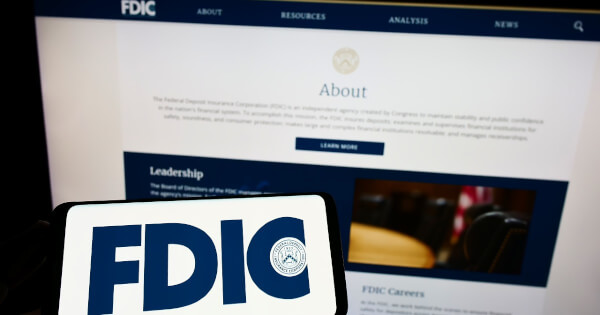Martin Gruenberg, the acting Head of the Federal Deposit Insurance Commission (FDIC) has assured that banking regulators in the United States will be responsible for providing adequate guidelines to financial institutions on how to deal with digital currencies.
Speaking at the Brookings Institute on Thursday, Gruenberg said this guidance will only come when regulators have gained a proper understanding of the risks that are associated with these nascent and volatile asset class.
“We must understand and assess the risks associated with these activities the same way that we would assess the risks related to any other new activity,” said Martin Gruenberg.
Gruenberg is not dismissive of the potential of digital currencies and foresees a scenario when assets like Stablecoins can be adapted to complement the Federal Reserve’s forthcoming FedNow service. Additionally, Gruenberg insinuated that stablecoins can also complement the Digital Dollar, the United States proposed Central Bank Digital Currency (CBDC) when it finally decides to float one.
In his caution, however, the acting FDIC Chairman said stablecoins that are designed for payments will be safer if they are hosted on permissioned blockchains with robust governance and compliance mechanisms.
“A public unpermissioned blockchain… poses enormous challenges in terms of basic supervisory responsibilities for safety and soundness, consumer protection and anti-money laundering,” Gruenberg said.
Over the years, the FDIC has played a more subtle role in regulating some Virtual Assets Service Providers (VASPs) whose business models appear like banking services. In one of such move, the regulator issued a cease-and-desist order against the now embattled crypto lending firm, Voyager Digital as well as a warning to FTX US for presenting their products to its customers as though they were insured by the FDIC.
Overall, the FDIC has maintained that any form of deposits made at non-banking institutions are not insured by the government and that investors cannot access any form of protection in the case of a mishap.
Image source: Shutterstock
Credit: Source link































